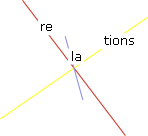|
|
> schauspielhannover
> Deutsches Schauspielhaus in Hamburg
> schauspielfrankfurt
![]()
The Theme Nights
Friday, October 6, 7 p.m.
Planet Moldova?
Our neighboring planets are unknown and inhabitable – or perhaps not? Even if the Republic of Moldova lies on the edge of Europe, here questions about social conditions are raised with a vividness and radicalness, which also make international problems trans-parent. With ”Planet Moldova,” the artist Pavel Brăila and friends invite us to learn about a society that has undergone rapid and extensive change since 1989 and, consequently, tell us a great deal about Europe’s current state. We will launch the "Planet Moldova" theme (and our tour) in Hanover with Pavel Brăila’s video work ”Baron’s Hill.” In 2003, the artist filmed bizarre pompous mansions in the south of Moldova. Purely representative buildings, they remain uninhabited: the Romany families who own them live mostly in nearby small houses, although they have saved the money for these lavish mansions for decades.
In his work "Eurolines-Catering or Homesick Cuisine," Brăila takes a look at another aspect of the Republic of Moldova: the title of the work is inspired by the bus company "Eurolines Moldova," which connects Chişinău with cities in and outside Europe and is the guarantee for a functioning worker migration across the whole continent. The theme night will end with a mixture of computer-generated music and VJ-ing by the artist collective "Planet Moldova."
Saturday, October 7, 7 p.m.
Remembering, Forgetting, Adjusting: Strategies of Recollection
How does one deal with a near and painful past? This question is massively important in those countries which, in the wake of the Yugoslav wars, have formed themselves anew and, indeed, are still in the process of doing so. It is, however, also generally significant for societies which, through the collapse of state-socialism, have become caught up in fast-paced transformation processes. We ask: how and what can be remembered, what is not remembered, and which questions are not even broached?
The Sofia theater director Javor Gardev will open the Hanover night with a presentation of his work "Visual Police," with which he recently stirred up the public in Bulgaria. As the "major of good taste," Gardev was a guest of talk shows and serious news programs and performed his role so convincingly that his authenticity was never questioned. His uniform (put together by Gardev himself), rank insignia (self-awarded), and his authoritarian gestures achieved the desired impact. A military guardian of good taste who, commissioned by the city authorities, takes care of aesthetic order. Though the major may have irritated the Bulgarian public, all the same it seemed a perfectly realistic proposition to the public.
A different form of "mis-" dominating everyday life is the focus of the new film "Grbavica" (Esma’s Secret) by the Bosnian director Jasmila Žbanić for which she won the Golden Bear at this year’s Berlin Film Festival. The film recalls the mass rape of Bosnian women during the war in the former Yugoslavia and reveals, with distressing clarity, how these traumatic experiences have no place in the new routine of life in Bosnia-Herzegovina. The author and journalist Carolin Emcke will speak with Jasmila Žbanić. As a foreign correspondent for "Der Spiegel," Emcke has reported from numerous crisis and war regions. Time and again, most recently in her publication "Von den Kriegen: Briefe an Freunde," she asks what constitutes a convincing act of bearing witness. Parallel to this dialogue, the film "Grbavica" will be shown in the Kommunales Kino (KoKi). We will also present the omnibus film "Lost and Found,” to which Jasmila Žbanić contributed an episode.
The Matinee
Sunday, October 8, 11 a.m.
Representations of the "Foreign" in the German Public Domain
The countries of eastern Europe rarely play a role in the public domain in Germany, and our knowledge about them is accordingly limited. Which misjudgments shape the image we have of countries in eastern Europe? What are the general premises determining how the "foreign" is represented and imagined in the public domain?
The matinee in the schauspielhannover will begin with a reading by Tilman Rammstedt. In 2005, the author was in Kosovo and has described, his unique laconic style, how it feels to move around as a "professional tourist" in a country about which one knows hardly anything – except that a war was fought there. What emerges here are observations about Kosovo and, furthermore, an observation of these observations – a narrative about the practices of empathy, detachment, and retranslation. After the reading, Stephan Lohr from NDR will discuss these and other issues with Tilman Rammstedt. This will be followed by a discussion between the Croatian cultural theorist Boris Buden and the philosopher and sociologist Oskar Negt. Expressed in an immensely powerful language that conveys his acumen, wit, and commitment, for years Boris Buden has described and analyzed the collapse of the former Yugoslavia and the subsequent development of the individual countries. One captivating feature of his texts is how they are not simply content with cultural explanations but seek out the political conditions triggering conflicts and developments. This long-time, watchful observer of the situation in the former Yugoslavia, who today lives in Berlin, will bejoined by Oskar Negt, one of most respected thinkers of the relationship between society and the public sphere in Germany.
